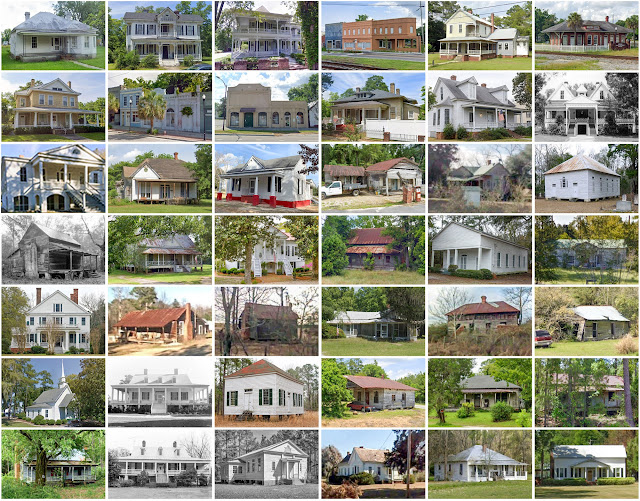Allendale County, South Carolina
Founding: 1919
Parent counties: Barnwell and Hampton
Namesake: The town of Allendale
Seat: Allendale (1919–)
Land area: 408 square miles
Population (historic): 16,098 (1920); 13,294 (1930); 13,040 (1930)
Pre-1940 housing survival rate: 14.4%
Farm housing in disrepair (1950): 37.7%
Nonfarm housing in disrepair (1950): 23%
Average farmhouse value (1930): $451Average outbuilding value (1930): $248
Average farmhouse size (1940): 4.4 rooms
Number of farms (1920): 1,764
Average farm size (1920): 55.2 acres
_________________________________________________________________________________
Namesake: Paul Allen, the town's first postmaster
Pre-1940 residences (estimated): 92 (6.3%)
_________________________________________________________________________________
Average farm size (1920): 55.2 acres
_________________________________________________________________________________
Allendale
Pre-1940 residences (estimated): 92 (6.3%)
_________________________________________________________________________________
_________________________________________________________________________________

Comments
Post a Comment